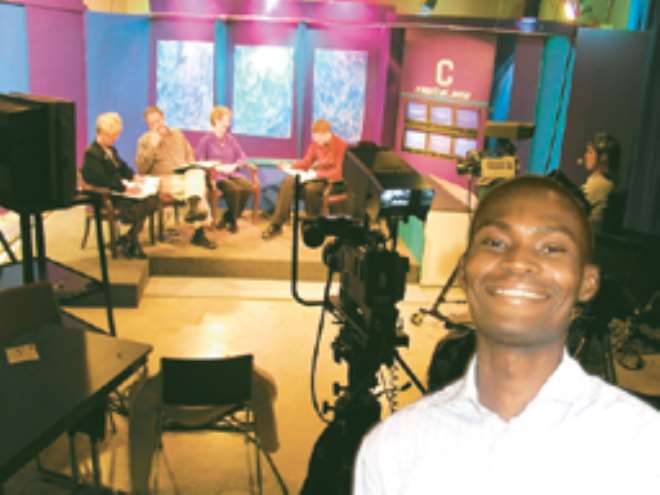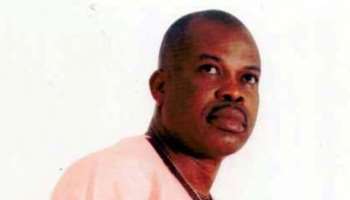How to manage private production studio profitably
Globally, broadcast production has brought many people fame and fortune, especially in the western world. In Nigeria, however, this business, which involves the production of radio or television programmes, movies and music videos has not always been very rosy as many people who entered into it also withdraw after some time.
Experts say this is because many Nigerians, who venture into the business, lack adequate technical knowledge on how to produce programmes for television.
The Chief Executive Officer, NxLevel Productions Limited, Mr. Bolaji Akinola, opines that with the deregulation of broadcasting, operating a production studio has become a money spinner, as it has broadened the scope of the industry thus enabling several privately-owned television stations to spring up.
Akinola, who presents a programme on maritime on television and radio, says anyone wishing to do his or her own television production must start properly. He notes that privately and publicly-owned television stations in Nigeria cannot adequately fill up the air time with their in-house programmes, making room for independent producers to have their contents aired
He says most stations source programmes from independent producers to make up the shortage of content.
This is where a business opportunity exists for production studios as an independent producer needs this to package his programme.
According to Akinola such progarmmes can be sold to the television station,or aired under a special arrangement including airtime purchase from the station to run the programme.
Film makers and music producers, Akinola notes, also need a studio to provide them with cameras, lights and editing facilities to package films or music videos.
He says a medium scale studio will require cranes, production vehicles and a recording facility that can accommodate a live audience of at least 50 people at a time to record talk shows. Such studio space can also be adapted for recording dramas and so on.
He says that for anyone intending to venture into the business, he needs a startup capital of about N5m for a small scale studio.
He says millions of dollars are required to establish studios such as that owned by 20th Century Fox, which is not available in the country.
According to him, a studio established with about N5m has the capacity of generating between N300,000 and N600,000 monthly if the promoter truly knows his onions.
Akinola says it requires a lot of understanding and knowledge of how the television industry operates.
He notes, “To establish a production studio, you need to acquire at least one digital camera. Gone are the days of VHS and Betacam cameras.
“These days in Nigeria, professional cinematographers prefer using the latest equipment, which includes PD 170 DV cameras, HD or HDD cameras.
“A new PD 170 camera sells for between N500,000 and N750,000 depending on where you are buying from and your bargaining power.
“You also need to buy the camera accessories, which include at least three red head lights, a tripod, a monitor, gels, external microphone, and possibly a mini-crane. You can do without the mini-crane or hire one from time to time if necessary.”
He says the cost of the accessories excluding the mini-crane could run into about N300,000, adding that an editing suite, which is a non-linear system is also needed.
He says a two or three-bedroom flat will be sufficient for a start, as one of the rooms or an area can be demarcated for recordings, the area designated for the purpose of recording should be sound-proofed.
He says a good cameraman and an editor should be employed as the promoter of the business may serve as the administrator/marketer for the first one or two years to ensure steady growth and effective monitoring, adding that air conditioning unit and a generator is needed because it runs on steady power.
He says a profit oriented businessman will ensure he designs a studio that also caters for radio production since he will not require any additional capital to do so.
The services rendered by a studio, he says, include camera hire, recording facilities, editing, special effects and 3D animation.
Akinola says editing session take an average of eight hours and studios charge as much as N10,000 – N15,000 per session.
He says special effect and animation is charged per job, adding that animation is time consuming and requires a lot of creativity, as there are few 3D animators in Nigeria, thus producing a 3D animation that runs for a 60 seconds commercial may cost as much as N200, 000.
He says a small studio operating with two DV cameras and two editing suites has the potential to generate as much as N40,000 daily, adding that a studio runs on time so the promoters and managers must ensure that employees are disciplined with the use of time.
Akinola says it is the National Broadcasting Commission that regulates all television and radio programmes including movies, as other associations in the industry include Independent Television and Radio Programmes Producers Association of Nigeria, Independent Broadcasters Association of Nigeria, Independent Television Producers Association of Nigeria; and Broadcasting Organisation of Nigeria, which is essentially an association of television stations owners.
He says the major threat to studio owners in Nigeria at the moment is South African studios, which offer better services, as many high profile adverts, musical videos and even movies are increasingly being shot and edited in South Africa.
He urges Nigerian studio owners should be up and doing and offer quality services just as it is obtaining in developed countries including South Africa.
Latest News
-
 "If You're For Me, I Am For You" - Cubana Chief P
"If You're For Me, I Am For You" - Cubana Chief P -
 "3 Days To Go" - Femi Adebayo Urges Fans To Get S
"3 Days To Go" - Femi Adebayo Urges Fans To Get S -
 "Stop Asking Me Questions About Speed Darlington"
"Stop Asking Me Questions About Speed Darlington" -
 "Benue Is The Most Underdeveloped State I've Ever
"Benue Is The Most Underdeveloped State I've Ever -
 Stan Alieke Urges Young Professionals To Take Lin
Stan Alieke Urges Young Professionals To Take Lin -
 Chizzy Alichi Teases Fans With Baby Reveal, Promot
Chizzy Alichi Teases Fans With Baby Reveal, Promot -
 "I'm Not Wearing Makeup From July 4th Till Decemb
"I'm Not Wearing Makeup From July 4th Till Decemb -
 "Stop The Challenge Of Mocking Kids With Down Syn
"Stop The Challenge Of Mocking Kids With Down Syn -
 Regina Daniels Celebrates Sons As They Mark Birthd
Regina Daniels Celebrates Sons As They Mark Birthd -
 Speed Darlington Threatens To Sue NAPTIP For Defam
Speed Darlington Threatens To Sue NAPTIP For Defam














